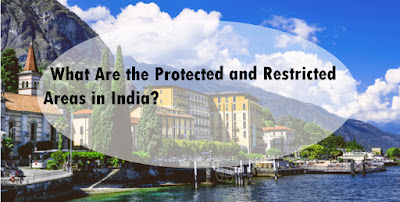India is a big country and one may not able to see everything on their visit. So, people choose special places in India to visit. But it's not like you can go anywhere in the country, there are places in the country which are prohibited for tourists to visit.
So, if you are going to make your travel itinerary for India, then you should definitely check out this article to help you with that. In addition to an entry visa, you are required to acquire a special permit to visit a few areas in India.
This article explains what are the protected areas and how you can visit them.
Let’s get started.
What is the Foreigners Act
Foreigners act 1958 states that a protected area permit is required for non-Indian citizens to visit certain parts of the country. And according to this act, the traveler must meet a few requirements to get the protected area permit.
Requirements for the foreigners to comply to get the restricted area permit:
- Travelers must travel in a group of at least two persons.
- They must travel with a registered agent in India and keep him close at all times.
- In a few areas, only a few entry and exit points exist and some areas are closed off for non-Indians.
- People from Pakistan, Bangladesh, China, and Myanmar can only get Protected Area Permit and that requires the approval of the home ministry.
- The PAP is valid for only 10 days but it can be extended for another 7 days if required.
The processing of the application may take up to 15 days and longer in some cases.
Now, let’s look at the areas where you need PAP in addition to e visa India.
Nagaland – Nagaland is now open to foreigners for a maximum of 10 days but you have to travel in a group of a minimum of 4 people. And the permits can be issued by the Ministry of External Affairs and Directorate of Tourism Nagaland.
Assam – There are a few great places in Assam that are restricted to foreigners such as Kaziranga National Park, Kamakhya temple, etc.
Arunachal Pradesh and Mizoram – You would also need to acquire PAP if you want to visit Arunachal Pradesh and Mizoram.
Sikkim – Parts of Sikkim are declared as the protected areas and that is why you would require a special permit to visit these areas.
Manipur – If you are looking to visit the famous Loktak Lake in Manipur, you would require a permit. So does other places in Manipur; the maximum stay in Manipur is five days.
Andaman Islands – The best islands the country has require a special permit for foreigners to travel there.
Parts of Lakshadweep, Himachal Pradesh, Kashmir, Uttar Pradesh, and Rajasthan also require a special permit for traveling.
You would have to follow all these instructions and rules after you apply for an Indian e visa. These rules are there to protect the culture of India and the travelers also from unsocial elements.
Note:- Apply for an online r-tourist visa from here:- https://www.indiane-visa.com/online-tourist-visa-india

